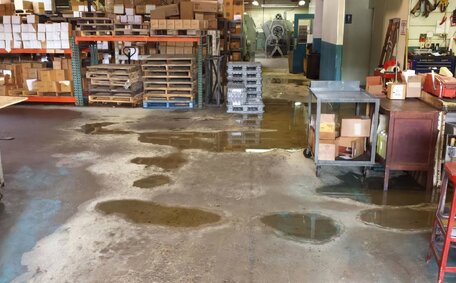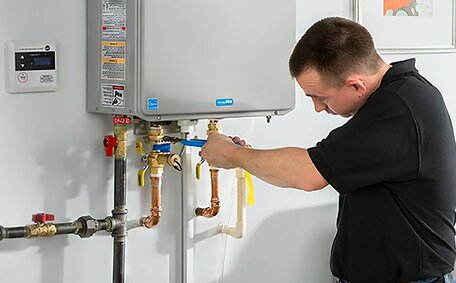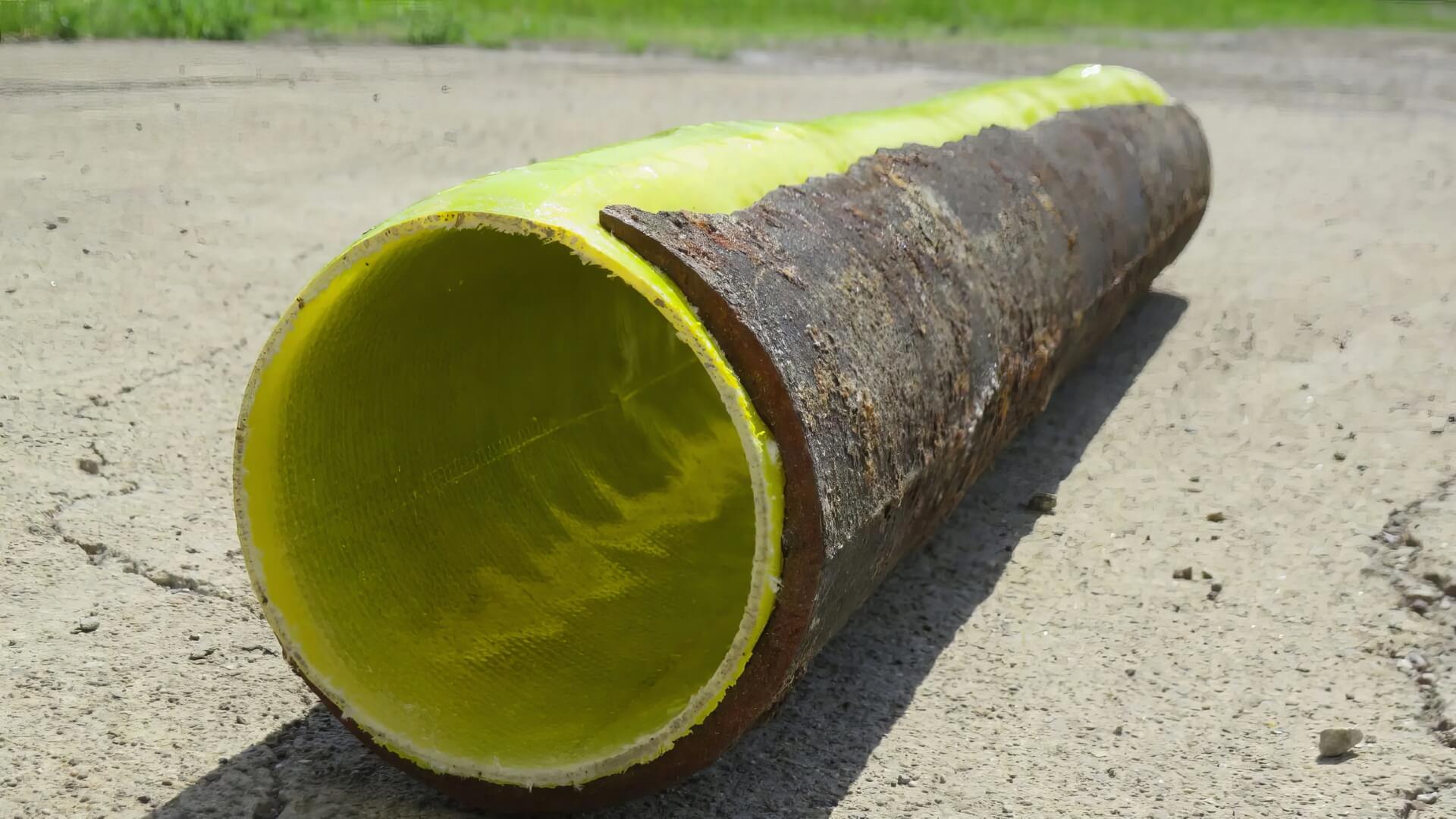
How To Fix Water Heater Issues
Can’t get hot water from your water heater? Try troubleshooting by checking the power supply, thermostat, heating elements and more. Call a pro plumber for repairs.
Read MoreSoil erosion and sediment transport can significantly impact drainage systems over time. As rainwater flows across land, it picks up loose soil particles and transports them, whereby waterways can become filled with sediment. This fine sediment can then make its way into stormwater pipes and drains, resulting in blockages.
Soil erosion arises as water flow loosens and displaces the upper soil strata.
Heavy rain, steep terrain, and insufficient vegetation expedite soil erosion.
At Baulkham Hills Plumbing, we’re well-aware of sediment pollution’s harmful effects. Our licenced plumbers have also observed how invasive tree roots, shifting foundations, and storm debris can cause considerable damage to drains across Baulkham Hills and greater Sydney. We use state-of-the-art equipment to clear any blockages and repair broken pipes caused by excessive sediment.
Numerous human activities hasten soil erosion in Sydney:
These widespread land use changes across Sydney have drastically increased soil erosion rates. Improper management of resulting sediment pollution endangers local water quality, aquatic habitats, and drainage infrastructure.
Construction sites are hotspots for soil erosion due to the significant earthworks and land clearing involved. Removing vegetation and topsoil leaves the ground highly vulnerable to water erosion during storms. Construction activities compact the soil severely, forming impermeable layers problematic during rains.
Lacking adequate measures, these factors trigger significant runoff, facilitating the transport of copious sediment in water. Frequently overlooked steps include not planting native vegetation, omitting silt fencing, and failing to set up sediment trap-equipped equipment wash areas. Intense rainfall steers uncontrolled sediment-rich runoff into storm drains, where it settles and accumulates.
Over time, the continued drainage issues lead to complete blockages. Pipe capacities become severely reduced, heightening flood risks.
Agricultural activities are a major driver of soil erosion across Sydney’s outskirts and rural areas. Intensive farming techniques like repetitive tilling and overgrazing strip away protective vegetation and degrade soil structure over time.
As an example, market gardens in Sydney’s West, lacking cover crops or contour farming, can cause significant erosion while specialising in growing vegetables. When heavy autumn rains ensue, vast amounts of loosened sediment engulf rivers and inevitably infiltrate urban storm drains.
Sustainable agriculture presents a solution, including practises like:
Employing these techniques would reduce agricultural sediment load and its incursion into the drainage systems of the Sydney area.
Accumulating excess sediment in drains, pipes, and water channels can cause severe blockages and contamination issues. As loose soil particles settle inside infrastructure, flow capacities become obstructed. One cubic metre of sediment can weigh over 1000 kg, bearing down on pipe walls and joints.
Sediment buildups can cause the introduction of chemical contaminants such as fuels, heavy metals, and pesticides into waterways.
These contaminants bond with sediment particles and can poison aquatic life when disturbed, while excess nutrients from fertilisers trapped in sediment contribute to algal blooms.
Turbidity is another major problem, as swirling sediment makes water opaque. Sunlight vital for underwater plants then gets blocked, disturbing food chains. Water treatment also becomes less effective with high turbidity, increasing risks to public health.
In many cases, the only recourse is to fully replace drainage systems weakened by invasive roots or accumulating sediment. Thus, preventing soil erosion is critical to sidestepping steep repair costs and irreversible harm to Sydney’s ecology.
Sediment buildup severely contaminates waterways by transporting harmful pollutants and excess nutrients. As soil erodes into water channels, toxic substances like heavy metals, fuels, pesticides, and fertilisers dissolve or cling to the sediment. These dangerous chemicals then spread throughout pipe networks and into the broader environment.
High nutrient loads from fertilisers also get trapped in sediment accumulations. Such dead zones are uninhabitable for marine organisms.
Decomposing algal blooms deplete oxygen, a process exacerbated by storms that churn up sediments and foster additional algal growth, smothering habitats.
Sediment-related contamination thereby poses grave threats to ecosystems across Sydney. By clearing blockages and preventing further erosion, we can curb the transport of toxic chemicals and nutrients into our water supplies. Protecting drainage infrastructure helps safeguard environmental and public health from the ill effects of water pollution.
Excess sediment can cause extensive damage to aquatic environments across Sydney. As erosion washes soil particles into local waterways, it causes substantial damage through:
Therefore, it’s vital to mitigate soil erosion to preserve Sydney’s delicate aquatic ecosystems. From small creeks to the greater Hawkesbury-Nepean catchment, excessive sediment has submerged habitats and stunted biodiversity.
There are several key strategies for preventing and managing sediment buildup in drainage systems:
Consistent inspection and upkeep are essential for the functionality of these controls. Sediment buildup can still occur, so monitoring and clearing blocked drains is also vital. Implementing proper erosion and sediment control plans during construction or land development is key to preventing excessive soil loss and drainage issues.
Regular drain maintenance is crucial for preventing sediment buildup and blockages. There are several key steps Baulkham Hills residents and Sydney businesses should follow:
Drains blocked by invasive tree roots may require restarting lines or partial replacement. By following these maintenance steps however, most sediment and debris can be effectively controlled before causing major issues.
Our team at Baulkham Hills Plumbing takes preventative action very seriously. We know firsthand that minimal sediment control on sites leads to hazardous contamination and drainage damage. contact us for expert aid in drain inspection and maintenance.
It’s time to call in a professional plumber if you notice any of the following signs of sediment buildup or drainage issues:
Our licenced plumbers at Baulkham Hills Plumbing have the essential expertise to inspect drain lines and troubleshoot any underlying issues. We use state-of-the-art drain cameras to locate blockages and advanced jetting equipment to flush out sediment, roots and other debris.
For professional assistance maintaining clear, operational drains, contact our team today on 1300 349 338 or [email protected]. With regular drain inspections and maintenance, we can prevent hazardous sediment buildup and safeguard your property from major flood damage.
Can’t get hot water from your water heater? Try troubleshooting by checking the power supply, thermostat, heating elements and more. Call a pro plumber for repairs.
Read MoreCloudy or milky hot water coming from your taps is generally harmless and caused by trapped air bubbles in the water. Simply running the tap for a little while will usually clear up the water. If the cloudiness persists, it could be caused by sediment buildup or issues with your pipes.
Read MorePipe relining involves inserting a tube inside damaged pipes to repair cracks and leaks without digging. This trenchless method may allow pipes and plumbing fixtures to be relocated during bathroom renovations. Contact our expert plumbers to understand if pipe relining can reposition your pipes and fixtures.
Read MoreBaulkham Hills, 2153 NSW
We will call back as soon as possible.




